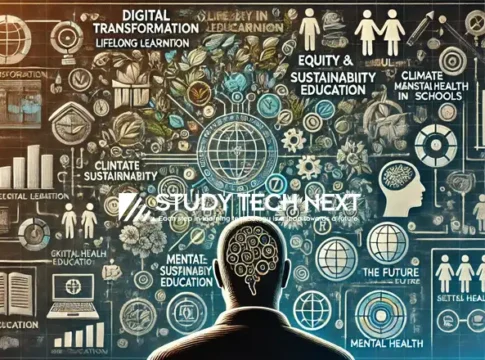The future of world education policy is being shaped by several key trends and priorities, aiming to create an inclusive, adaptable, and sustainable education system that prepares students for the evolving demands of the 21st century. Here are some of the major focuses for future education policies globally:
1. Equitable Access and Inclusion
Policymakers are working to ensure that all students, regardless of socioeconomic status, location, or abilities, have access to quality education. This involves eliminating barriers for marginalized groups and providing support for students with disabilities, refugees, and those living in poverty. The goal is to reduce disparities in education systems, both within and between countries, by providing resources and technologies to underserved communities.
2. Digital Transformation and EdTech Integration
The pandemic has accelerated the adoption of digital learning tools, but future education policies will focus on further integrating technology into daily learning. This includes creating hybrid learning environments, improving digital infrastructure, and using artificial intelligence to personalize learning experiences. Governments are increasingly investing in technology that supports digital literacy, coding, and online collaborative tools to prepare students for a tech-driven economy.
3. Skills for the Future
Education systems are shifting from traditional content-based curricula to a focus on skills development. Policies are promoting critical thinking, creativity, emotional intelligence, and problem-solving skills, which are essential for the future workforce. There is also an emphasis on STEM (science, technology, engineering, and mathematics) and digital literacy, ensuring that students are prepared for the jobs of tomorrow, many of which do not exist yet.
4. Sustainable Development and Global Citizenship
Many countries are incorporating global challenges, such as climate change and sustainability, into their curricula. The future of education policy will include teaching students about environmental stewardship, the Sustainable Development Goals (SDGs), and fostering a sense of global citizenship. This approach aims to create a generation that is not only academically proficient but also socially and environmentally conscious.
5. Lifelong Learning and Vocational Training
With the rapid pace of technological and societal change, education policies are focusing on promoting lifelong learning. This includes creating flexible pathways for adult learners and reskilling opportunities for professionals who need to adapt to new industries. Vocational training and partnerships with the private sector are being strengthened to ensure that education systems remain responsive to evolving labor market demands.
6. Mental Health and Well-being
Future education policies are placing a greater emphasis on the mental health and emotional well-being of students. Schools are expected to adopt policies that support mental health through counseling services, social-emotional learning (SEL), and reducing academic pressure. Recognizing the importance of a holistic approach to education, policymakers aim to build resilient, healthy students who are prepared to navigate the complexities of the modern world.
7. Teacher Professional Development
A key element of future education policies is the enhancement of teacher training and professional development. This includes upskilling teachers to integrate digital tools, manage hybrid classrooms, and address the emotional and mental health needs of students. Continuous teacher development is seen as critical to delivering quality education and adapting to the changing educational landscape.
8. Collaboration with International Organizations
Global organizations like UNESCO, UNICEF, and the OECD are increasingly involved in shaping education policies worldwide. These organizations advocate for inclusive and equitable education, promote global standards, and help countries develop policies that meet international benchmarks for quality education.
9. Assessing and Measuring Learning Outcomes
Future education policies are expected to focus more on measuring learning outcomes in innovative ways beyond standardized testing. This could include more personalized assessments, project-based evaluations, and tools that measure both academic and social-emotional development, ensuring a more comprehensive understanding of student progress.
The future of education will be shaped by the need to prepare students for an uncertain world, ensuring that they are adaptable, socially responsible, and capable of lifelong learning. Policymakers across the globe are working towards creating an education system that is not only more equitable and inclusive but also one that equips students with the skills and knowledge they need to thrive in the future.

